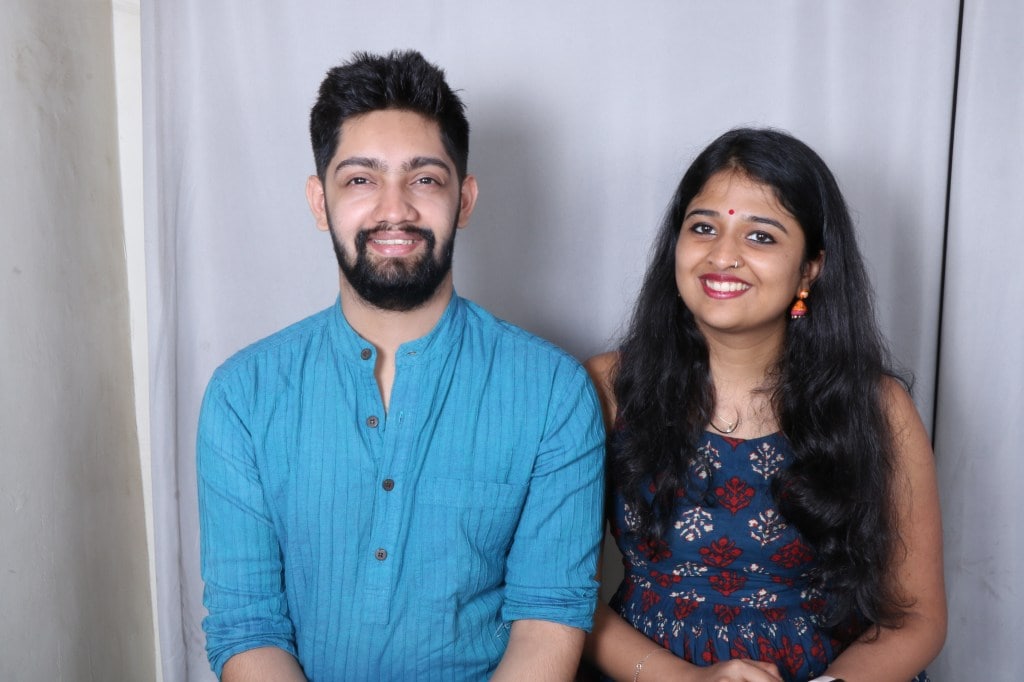Over the years, a lot has been said about allyship, and its universal effect on the LGBTQ+ community. Quite simply put, an ally is someone who educates themselves about and speaks up for the community. But to learn from members of the community means there are no assumptions built around what it takes to be a good ally.
In a candid conversation, Kesavan Nampoothiry, a Content Designer and member of Intuit’s Pride employee resource group, and his partner Sanjana Prasad, a private practitioner, tell us what allyship means for them. They say, there are many ways to exhibit good allyship. But the most important thing is to help others build healthy perspectives on the LGBTQ+ community.
Their views are based on internal experiences and challenges that define the path to being a good ally for the LGBTQ+ community. Read on to know more.
Understand the sentiment
Members of the LGBTQ+ community have faced feelings of isolation and underrepresentation over the years. Yet, they stand strong in their views. While their sentiment is not understood by many due to lack of shared experiences—embracing them in their best interest is key to being a good ally.
 Kesavan Nampoothiry and his partner Sanjana Prasad
Kesavan Nampoothiry and his partner Sanjana Prasad
Kesavan: A good ally can impact our lives in the best possible way. That happens only when allies align with our sentiment—to be interested in men or women—and still feel accepted. Allies should be able to create a safe space where we can talk about ourselves and life choices. When I’m around people who are supportive of my views, I’m vulnerable yet comfortable.
Sanjana: Allies should listen and accept us for who we are. When I say accept, it means they should normalize our way of thinking. I have known people who made mention of their privilege to accept me. They should acknowledge that genders in the universe are a broad spectrum that can’t be defined in a binary.
Unlearn and learn
All are better allies when they listen and learn. Perhaps learning about LGBTQ+ members, and their desire to live as fully can minimize unconscious bias. In other words, they need to be seen like the majority—breaking free from societal norms.
Kesavan: Part of the reason unlearning is as important as learning about the community is because of the myths that exist. There is so much said that it can be confusing for people who want to be an ally and don’t know where to start. Rather than turning inward, they should pay attention to the abundance of stuff in the world—including relationships and ideas. This reflection can help them understand that our choices can be different—yet as people we’re the same.
Sanjana: Being an ally is an ongoing process. It is critical that people continue to learn about our experiences—and avoid making assumptions. Having an ally around helps when someone wants to learn about my internal experiences as a bisexual because an ally can express my point of view and ensure I’m comfortable in the conversation. Being sensitive while asking questions is important. Then, it makes people connect with us on a deeper level. The way that tends to impact is they are more informed in their perceptions about the LGBTQ+ community at large—creating an inclusive future.
Exhibit outward action
It requires human connection to bridge the gap that exists with the LGBTQ+ community. This means allies ought to support LGBTQ+ members through continuous action—such as empathy, awareness, and speaking up for the community.
Kesavan: The first action that comes to my mind is to lead with kindness. Allies mean we’re talking about hetrosexual people privileged in their views over those marginalized. They can promote social awareness on issues of gender, race, and sexual orientation within their social groups. It comes full circle when allies advocate for the voices of people not heard.
Sanjana: The one thing that stands out to me is that allies should learn from their mistakes. They are bound to say or do the wrong thing at certain points. But the important thing is to acknowledge when they are wrong. It lends a fresh perspective on how to be a good ally and identify unconscious bias.
At Intuit, we’re proud of our continuous efforts to encourage people to be an ally. Our initiatives create visibility among allies and peers to ensure culture diversity, and remove unconscious bias. On March 14, we will be hosting the 4th annual Trans+ Summit that raises awareness on the current trans+ terminology, issues and challenges, and being a better ally.
Want to be part of our diverse tech culture and connect with people with different experiences? Check out open positions to join us.